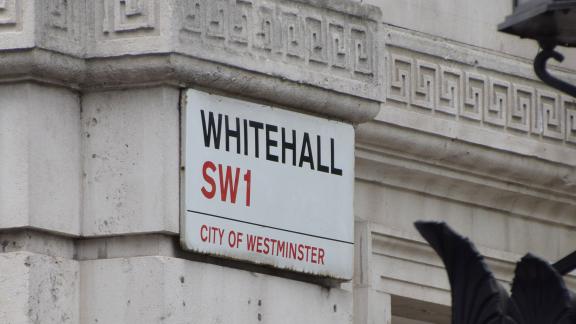The health and care bill: key changes ahead

The recent appointment of a new Secretary of State, Sajid Javid, plus the delay addressing important issues such as CQC regulation, means we can expect significant amendments to the health and care bill this autumn that will shape the health and care system.
The healthcare sector is digesting the health and care bill, which received its second reading in the House of Commons earlier this month. The bill, largely driven by the NHS’s own recommendations, will advance evolutionary changes to the NHS, including replacing clinical commissioning groups (CCGs) with integrated care systems (ICSs), moving from an ethos of competition to collaboration and partnership working.
The second reading debate on 14 July provided insight into where the bill may be amended in parliament.
ICS boundaries hit political rocks
Echoing concerns of NHS leaders, there was cross-party opposition to redrawing ICS boundaries to make them co-terminous with those of local authorities, a measure proposed by the previous health secretary Matt Hancock in his Integration and Innovation white paper.
Many MPs expressed concern over potential upheaval to established local partnerships and patient pathways.
Sajid Javid, the new Secretary of State, has responded by halting all but four boundary changes. This is symptomatic of a broader dynamic: more government amendments to the bill than normal are likely as Javid makes his own impression on NHS reform.
New Secretary of State powers under the spotlight
While NHS leaders broadly support the reforms, the proposed new powers for the Secretary of State aroused the most vocal opposition from the health sector.
Health leaders are concerned that clinically-driven local service closures could be overturned in response to political opposition. These powers were popular with many MPs as they would provide a route to block unpopular closures and win favour with their constituents, but could risk significant changes to local plans.
The NHS Confederation is pressing for clarity and checks and balances on interventions.
Annual workforce projections
The bill itself will not fix workforce shortages, but it can encourage action. We recently joined the Health Foundation and other organisations calling on the government to mandate independent, long-term workforce projections more frequently than ‘at least every five years’, as set out in the bill.
This proposal gathered clear support from many Conservative MPs and Tory MP Anne Marie Morris has tabled an amendment which may have enough cross-party support to pass.
Integrated representation concerns
A key line of attack from Labour is the potential for the bill to permit private sector representatives to sit on ICS boards or partnerships.
Although the inclusion of Virgin Healthcare is the only example of this to date, the shadow health secretary Jonathan Ashworth suggested that Labour will propose banning the private sector from roles within ICSs.
Given that GP practices, community pharmacists and not-for-profit community interest companies are legally private sector organisations, but all are essential to delivering NHS services, such an amendment could lock out key healthcare providers and undermine integration.
The nuance of this amendment will have far-reaching consequences on who has a voice in future decision-making
The Secretary of State seems aware of both the political and legal concerns, suggesting the government proposes an amendment to ensure ‘integrated care boards will be made up of public sector bodies and those with a social purpose…not driven by any private interest’.
The nuance of this amendment will have far-reaching consequences on who has a voice in future decision-making.
ICS regulation still not clarified
Another concern for ICS leaders is the future role of regulating ICSs, with the remit of the CQC over ICSs still to be determined. Some leaders worry that an overbearing regulatory environment could damage ICS’s collaborative culture.
Jeremy Hunt, who introduced the current ratings system for providers, has been calling for the CQC to provide ‘Ofsted-style ratings’ of ICSs, potentially inspecting ICSs as it does providers and a departure from the ‘co-regulatory role’ of existing CCGs. While Matt Hancock consented to Hunt’s proposal, his successor seems more lukewarm.
The Department of Health and Social Care is working on proposals and the government will introduce its own amendment to the bill. The nature of this amendment could shape the culture of ICSs for years to come.
The ‘triple aim’ – a ticking time bomb?
Absent from parliamentary debate was the legal duty for ICSs ‘to have regard to’ promoting population health, service quality and efficiency and sustainability when exercising their functions – the so-called triple aim.
There are also legal duties to ‘have regard’ for education, training and health inequalities. While we support these goals, the wording of the bill could prove a ticking-time bomb of legal challenges for the NHS.
If ICSs cannot produce documentary evidence of how they have had due regard for all these factors when making decisions, they could be at risk of judicial reviews. The bill’s passage through parliament could uncover more legal trips from well-intentioned, but unfortunately drafted, clauses.
The wording of the bill could prove a ticking-time bomb of legal challenges for the NHS
Next steps?
On 7 September the bill reaches Committee stage. This is when outside representations, including from the NHS Confederation, are considered and often more technocratic amendments tabled, before the bill returns to the House (no later than 2 November).
Given the government’s large Commons majority, it is likely to get its way on most areas. However, the safe passage of the bill through the House of Lords, where the government lacks a majority, will be more challenging. Expert, technocratic peers – including the newly ennobled Lord Stevens – will have a greater chance of successfully passing amendments, which will return to the Commons until the two Houses reach agreement.
Given the breakneck timetable to implement the bill by April 2022, the government may have to compromise with the Lords to get the bill through on time.
There’s still lots to play for…



